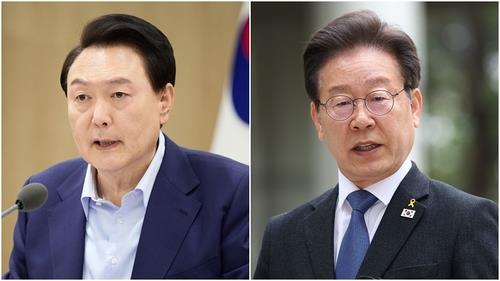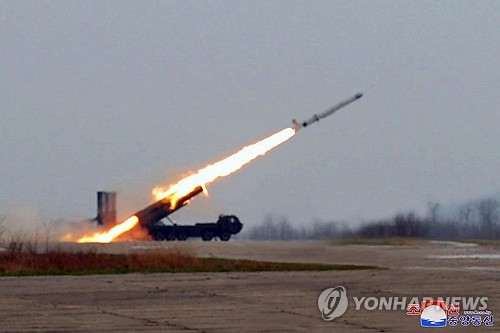(LEAD) S. Korea's short-term foreign debt hits 2-year high
(ATTN: RECASTS lead, headline and slug; ADDS details on short-term debt throughout)
SEOUL, Sept. 1 (Yonhap) -- The ratio of South Korea's short-term foreign debt to its foreign reserves soared to the highest level in two years as local branches of foreign lenders increased their borrowing from overseas, data showed Tuesday.
The country's short-term external debt totaled US$121.2 billion as of the end of June, increasing $8.4 billion from three months earlier, according to the data by the Bank of Korea (BOK).
Korea's total external debt reached $420.6 billion as of end-June, also gaining $1.7 billion over the three-month period.
The ratio of the short-term debt against the country's total external debt rose 1.9 percentage point to 28.8 percent, the highest level since 29.2 percent in the second quarter of 2013.
The portion of the amount against the country's foreign reserves also moved higher, adding 1.2 percentage point to 32.3 percent, reaching the highest level since 33.3 percent in the third quarter of last year.
South Korea's short-term foreign debt, which refers to external debt with a maturity of less than one year, was an area of concern during past financial turmoil as a sharp rise in foreign debt left lenders vulnerable to external shocks.
The ratio had sharply surged during the global financial crisis, hitting 79.3 percent in the third quarter of 2008.
The data also showed that the country's foreign assets reached a record high in the second quarter on more investments in overseas securities and increased foreign exchange reserves.
External assets stood at $711.9 billion as of end-June, $30.2 billion more than three months earlier.
In comparison, South Korea's external debt reached $420.6 billion as of the end of June, up $1.7 billion from the end of the first quarter.
Of the total, $299.4 billion was long-term debt, down $6.7 billion from the previous three-month period, while short-term debt rose $8.4 billion to $121.2 billion.
The finance ministry said the dip in long-term debt is mostly due to changes in the foreign exchange rate that affected bonds issued in the Korean won, while a rise in short-term debt is related to more foreign currency borrowing by banks and investments made in currency stabilization bonds by non-residents.
"Despite some changes, the overall level of foreign debt is not large, with the country retaining sufficient foreign exchange reserves," the ministry said.
The country's foreign exchange reserves reached $370.8 billion as of the end of July, down $3.9 billion from June, according to central bank data.
yonngong@yna.co.kr
mil@yna.co.kr
(END)
-
 Overdue debut of Korean abstract art pioneer Yoo Young-kuk at Venice Biennale
Overdue debut of Korean abstract art pioneer Yoo Young-kuk at Venice Biennale -
 Defense chief says N. Korea's hypersonic missile 'unsuccessful' in last-stage glide flight
Defense chief says N. Korea's hypersonic missile 'unsuccessful' in last-stage glide flight -
 Relax, immerse yourself in scents at Venice Biennale's Korean Pavilion
Relax, immerse yourself in scents at Venice Biennale's Korean Pavilion -
 N. Korea has capability to genetically engineer biological military products: U.S. report
N. Korea has capability to genetically engineer biological military products: U.S. report -
 S. Korea marks 30th anniv. of Korean Pavilion at Venice Biennale with contemporary art
S. Korea marks 30th anniv. of Korean Pavilion at Venice Biennale with contemporary art
-
 Overdue debut of Korean abstract art pioneer Yoo Young-kuk at Venice Biennale
Overdue debut of Korean abstract art pioneer Yoo Young-kuk at Venice Biennale -
 Relax, immerse yourself in scents at Venice Biennale's Korean Pavilion
Relax, immerse yourself in scents at Venice Biennale's Korean Pavilion -
 Artist Lee Bae captures ethereal Korean aesthetics at Venice Biennale
Artist Lee Bae captures ethereal Korean aesthetics at Venice Biennale -
 S. Korea marks 30th anniv. of Korean Pavilion at Venice Biennale with contemporary art
S. Korea marks 30th anniv. of Korean Pavilion at Venice Biennale with contemporary art -
 Defense chief says N. Korea's hypersonic missile 'unsuccessful' in last-stage glide flight
Defense chief says N. Korea's hypersonic missile 'unsuccessful' in last-stage glide flight
-
 N. Korea says it conducted 'super-large warhead' test for strategic cruise missile
N. Korea says it conducted 'super-large warhead' test for strategic cruise missile -
 (2nd LD) N. Korea says it conducted 'super-large warhead' test for strategic cruise missile
(2nd LD) N. Korea says it conducted 'super-large warhead' test for strategic cruise missile -
 (LEAD) Yoon proposes first-ever meeting with opposition leader
(LEAD) Yoon proposes first-ever meeting with opposition leader -
(URGENT) N. Korea conducted 'super-large warhead' test for strategic cruise missile: KCNA
-
 Gov't likely to accept university chiefs' request to lower med school enrollment quota
Gov't likely to accept university chiefs' request to lower med school enrollment quota


















